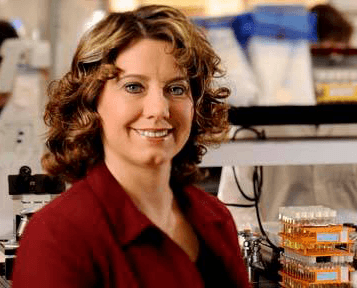
Dr. Mindy Brashears
Professor of Food Safety and Public Health and the Director of the International Center for Food Industry Excellence at Texas Tech University
Dr. Mindy M. Brashears is a Professor of Food Safety and Public Health and the Director of the International Center for Food Industry Excellence at Texas Tech University. Her research program focuses on improving food safety standards to make an impact on public health. The work done evaluates interventions in pre- and post-harvest environments and on the emergence of antimicrobial drug resistance in animal feeding systems. While her interests are primarily in meat and poultry, she has done some work with spinach, cantaloupe and other produce products. Dr. Brashears divides her time between family, local Lubbock research and fostering research and safety improvements in Central and South America.
With her international work, specifically in Honduras, Dr. Brashears has found a passion for fostering change through her actions and those of her students. She believes that giving her students “seeds” of knowledge will allow them to “grow” knowledge and create change after they return home upon completing their education. Her hopes through her practice in research and education is to make the world a better place for future generations to prosper in and enjoy.
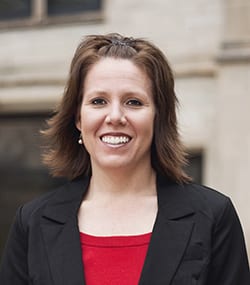
Dr. Leslie Edgar
Department Head for the Agricultural Leadership, Education and Communication Department at the University of Georgia
Dr. Leslie Edgar serves as the Department Head for the Agricultural Leadership, Education and Communication Department at the University of Georgia, since March 2018. Previously, she served as an Assistant Dean for the Dale Bumpers College of Agricultural, Food and Life Sciences and directed the International Programs Office. She is a Professor of Agricultural Communications and serves as an evaluator on the USDA/NIFA Higher Education Challenge grant that is funding this course. She and Dr. Wayne Mackay serve as course instructors, and Katie Dobbins serves as the course graduate assistant.
Dr. Edgar received a Ph.D. in Agricultural Leadership, Education, and Communication with emphases in Agricultural Communications, Leadership Education, and Distance Education from Texas A&M University in 2007. She earned a M.S. in Agricultural Systems, Technology, and Education with an emphasis in Adult Learning from Utah State University in 2002. Prior to completing her education, Dr. Edgar worked for four years in the for-profit business sector and five years in non-profits. Within her work experience, she gained management, leadership, marketing, advertising, public relations, program development, and fundraising and grantsmanship experience.
Dr. Edgar is an expert in electronic media and distance education development and delivery. She received an eLearning certificate in 2007 and has designed eight asynchronous courses and more than 30 units of online instruction. She has evaluated more than 25 educational modules of instruction. Dr. Edgar has received 10 teaching or advising awards (5 national awards), including the National New Teacher Award for Excellence in College and University Teaching from the Association of Public and Land Grant Universities and USDA. She has earned 35 research awards since beginning in higher education in 2007. Additionally, Dr. Edgar is a Food Systems Leadership Institute Fellow.
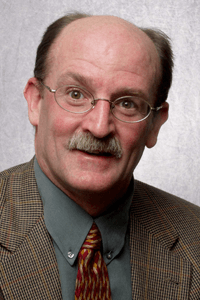
Dr. Luke Howard
Professor of Food Chemistry in the University of Arkansas, Food Science Department
Dr. Luke Howard is a Professor of Food Chemistry in the University of Arkansas, Food Science Department. Dr. Howard has 27 years of experience working in the area of fruit and vegetable processing. He worked as a postharvest physiologist at Dole Packaged Foods Company for two years and has conducted fruit and vegetable processing research at Texas A&M University for five years and the University of Arkansas for 20 years. Dr. Howard’s current research is focused on the identification and quantification of phytochemicals and fresh and processed horticultural crops. He has published over 120 papers and five book chapters on various topics related to fruit and vegetable processing, quality and nutrition. Dr. Howard also co-edited a book on Analysis of Antioxidant-Rich Phytochemicals. He has instructed undergraduate courses on Commercial Fruit and Vegetable Processing, Introduction to Food Science, Quality Evaluation and Control and graduate level courses on Food Quality, and Food Biochemistry.
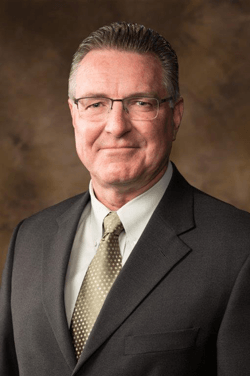
Dr. Wayne Mackay
Professor and Head of the Horticulture Department and Interim Department Head for Food Science
Dr. Wayne Mackay is Professor and Head of the Horticulture Department and Interim Department Head for Food Science. Dr. Mackay received his doctorate in 1991 from the University of Maryland, College Park. He was a member of the Texas A&M University Department of Horticulture faculty from 1991 until 2005 when he joined the University of Florida as Center Director and Professor at the UF IFAS Mid-Florida Research and Education Center. He became Chair of the UF Environmental Horticulture Department in 2012 and joined the University of Arkansas in 2014. Dr. Mackay is a Fellow in the American Society for Horticultural Science and has served in numerous positions within ASHS. He served as President of the Southern Region for the American Society for Horticultural Science as well as numerous positions within SRASHS. In addition he served as the Plant Growth Regulation Society of America Executive Officer (2005-2010), President (2002), and a board member of the fifteen years, culminating in the Lifetime Membership Award in 2012. He served as Consulting Editor and Associate Editor for HortScience, Associate Editor of the PGRSA Quarterly and Associate Editor of Scientia Horticulturae. He received the ASHS Publication Award for Best paper in Ornamentals in 2008 and received the Superior Service Award from Texas A&M AgriLife Extension in 2013 for his work there. He has published and lectured on subjects ranging from plant breeding, ornamental/floriculture cultivar development, micropropagation of ornamentals, postharvest physiology of cut flowers, seed physiology, and plant growth regulation of ornamentals.

Dr. Tim Davis
Regional Director for Asia for the Borlaug Institute of International Agriculture at Texas A&M
Tim Davis received his B.S. in Horticulture from Brigham Young University in 1978. He received his M.S. and Ph.D. degrees in Horticulture from Oregon State University in 1980 and 1983, respectively. Dr. Davis served as Resident Director of the Texas A&M Research and Extension Center in Dallas from 1996 to 2005 and as Head of the Department of Horticultural Sciences at Texas A&M from 2003 to 2011. He has been a faculty member in the Department since 1989, with emphases on Environmental and International Horticulture.
Dr. Davis’ current primary responsibility includes serving as Regional Director for Asia for the Borlaug Institute of International Agriculture at Texas A&M. He also teaches HORT 281 – Horticulture as a Profession. He has significant professional service responsibilities and serves as Chair of the Department’s Promotion and Tenure Committee. His research background is in adventitious root formation and plant growth regulation. He was named a Fellow of the American Society for Horticultural Science in 2006.
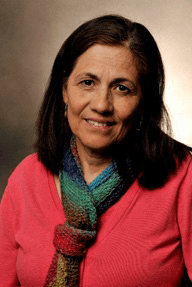
Dr. Elena Garcia
Arkansas State coordinator of SSARE-PDP
My research responsibilities include designing and conducting research that addresses the needs of the state’s horticulture industry while enhancing and maintaining sustainable agricultural systems. My research integrates principles and practices of horticulture, economics, and pest management to aid in the sustainability of farming enterprises. Primary research objectives include cultural practices such as cultivar performance, plant nutrition, organic production, and protected agriculture to extended-season production utilizing tunnel technologies. My teaching objective whether teaching in an academic settings or working with farmers is to generate the capacity for intelligent decision-making and problem solving based upon scientific knowledge and sustainable agriculture practices. I am the Arkansas State coordinator of SSARE-PDP. My responsibilities include collaboration with UA Pine Bluff in the development and implementation of educational training program in sustainable agriculture for Extension agents, farmers, and other agricultural professionals. Throughout my career, I have volunteered with “Farmer to Farmer” to visit underdeveloped nations to deliver educational programs to indigent fruit farmers in the region. These experiences have allowed me to acquire a better understating of opportunities and constraints facing limited resource farmers.
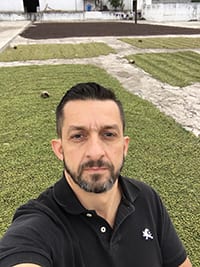
Dr. Leo Lombardini
Professor in the Department of Horticultural Sciences at Texas A&M University and Deputy Director of the World Coffee Research cente
Dr. Leo Lombardini is a Professor in the Department of Horticultural Sciences at Texas A&M University and Deputy Director of the World Coffee Research center. Dr. Lombardini received his Laurea degree (equivalent to B.S. + M.S.) in Forestry from the Università degli Studi di Firenze, Italy, in 1993, and his Ph.D. in Horticulture from Michigan State University in 1999. From 1999 until 2002, he held a postdoctoral position at the Washington State University, Tree Fruit Research and Extension Center in Wenatchee. In 2002, he joined the faculty of the Department of Horticultural Sciences at Texas A&M University, as horticulturist/pecan physiologist. Dr. Lombardini’s research focus is plant physiology, especially in relation to gas exchange and environmental stress, with particular emphasis to pecan. In addition, he is interested in investigating the nutritional aspects of pecans and their properties in relationship to human health. Dr. Lombardini teaches the following courses: Hort Learning Community (HORT 225), Nut Culture (HORT 418), International Horticulture (HORT 440, on campus and as a Study Abroad in Italy), Applied Physiology of Horticultural Crops (HORT 604), and molecular and Physiological Basis for Plant Stress Responses (HORT 610). Dr. Lombardini is also the Job and Internship Coordinator for the Department of Horticultural Sciences.
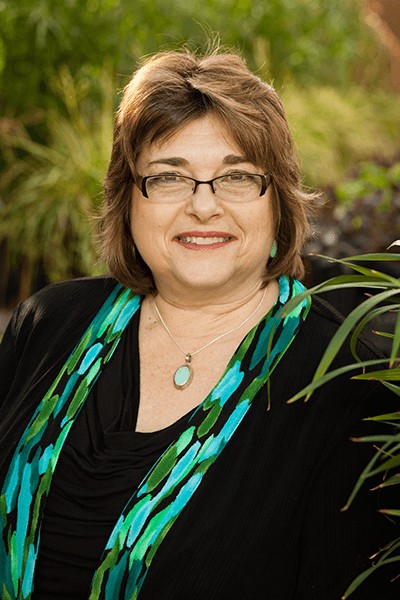
Dr. Cynthia McKenney
Rockwell Endowed Professor of Horticulture and Associate Chair for the Department of Plant and Soil Science at Texas Tech University
Dr. McKenney is the Rockwell Endowed Professor of Horticulture and Associate Chair for the Department of Plant and Soil Science at Texas Tech University. She teaches a wide variety of horticulture courses and, for over 25 years, actively researches best management practices for increased yield of horticultural crops in semiarid environments. Research efforts have included salinity tolerance, alternative harvesting practices and irrigation management systems. Dr. McKenney’s research interests led her to Malawi and Kenya to assist in establishing vegetable production systems utilizing agroecology concepts including food forests, Keyline design, and alternative irrigation systems. Her passion is to help individuals find ways to successfully raise their own food in demanding locations. She hopes this module will provide the first steps towards empowering local farmers to fight against crop loss and famine.
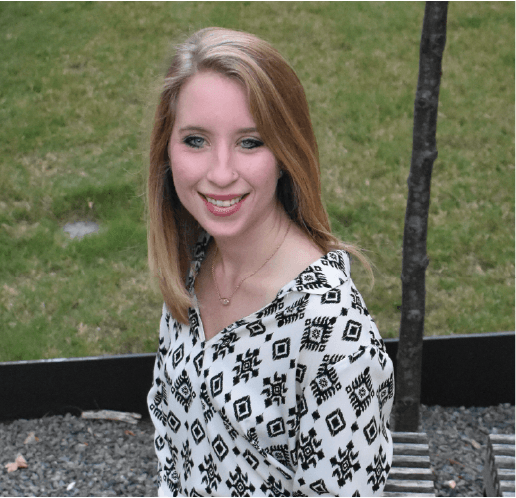
Katie Dobbins
Graduate Assistant in the Department of Agricultural Education, Communications and Technology at the University of Arkansas
Katie Dobbins is a graduate assistant in the Department of Agricultural Education, Communications and Technology at the University of Arkansas. She is pursuing a master’s of science degree in Agricultural and Extension Education. Katie graduated from Hendrix College in 2013 with a degree in Foreign Languages—Spanish and a minor in biology with an environmental studies concentration. She guided research for an international research team investigating the phylogenetic divergence patterns of putative hybrid Pinyon pines. Katie volunteers with the Fayetteville organization Seeds that Feed which distributes food donations from the local NW Arkansas Farmers’ Markets and Whole Foods to different food distribution non-profits. She has a vested interest in exploring the intersection between sustainability and agriculture, as well as the applications of nutrition and urban farm settings as a resilience factor against community food insecurity.
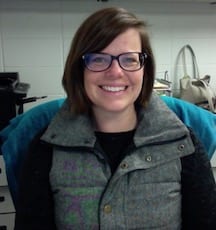
Dr. Kristen Gibson
Associate Professor in the Department of Food Science at the University of Arkansa
Dr. Kristen Gibson is an Associate Professor in the Department of Food Science at the University of Arkansas. She received her PhD from the Johns Hopkins Bloomberg School of Public Health in 2010. Her primary research experience is in the field of Environmental Health Sciences with a focus on microbial water quality and detection of viral pathogens in environmental matrices including food, water, and air. Her past and present research interests are primarily focused on understanding the fate and transport of pathogens in the environment; optimization of methods for the detection of viral pathogens in food, specifically fresh produce, and water and on environmental surfaces; and food safety at the retail and consumer level.
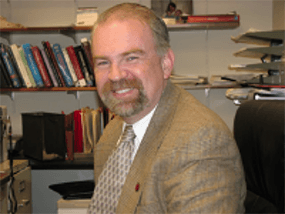
Dr. Conrad Lyford
Professor of Agricultural and Applied Economics at Texas Tech University
Dr. Conrad Lyford is a Professor of Agricultural and Applied Economics at Texas Tech University. Dr. Lyford received his B.S. and M.S. degrees in Agricultural Economics from Texas A&M University and his Ph.D. in Agricultural Economics from Michigan State University. He has taught five undergraduate course and two graduate course while advising over 20 undergraduate and 30 graduate students during his 9 years at Texas Tech. Dr. Lyford is a founding member of the Transdisciplinary Research Academy at Texas Tech and has been a Fulbright Fellow to Hawassa University, Ethiopia. Dr. Lyford serves on the C-FARE, Blue Ribbon Panel—Consumer Concerns about Food, Health and Safety from 2011 to the present.

Dr. Theresa Murphrey
Associate Professor in the Department of Agricultural Leadership, Education, and Communications at Texas A&M University
Dr. Theresa Murphrey is an Associate Professor in the Department of Agricultural Leadership, Education, and Communications at Texas A&M University. At Texas A&M, Murphrey is the project leader for the eLearning Development Certificate in Agriculture. She has developed and teaches online courses that focus on evaluation, technological change, instructional design, and online learning. Dr. Murphrey’s professional honors include: Outstanding Early Achievement Award: Presented by the Association for International Agricultural and Extension Education (May 2012); Gold Teaching Award: Presented by the United States Distance Learning Association (May 2010); and the Outstanding Young Member Award: Presented by the Western Region American Association for Agricultural Education (April 2012). Her research topical areas of emphasis include effective use of technology in instruction, understanding learning styles and use of technology and evaluation of the diffusion of innovations.
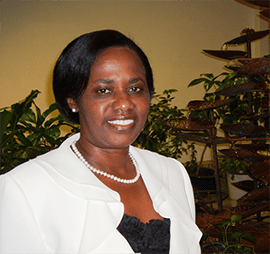
Dr. Mary Murimi
Professor of Nutrition in the college of Human Sciences at Texas Tech and the Chancellor of Daystar University in Kenya
Dr. Mary Murimi is a professor of Nutrition in the college of Human Sciences at Texas Tech and the Chancellor of Daystar University in Kenya.
When in the classroom Dr. Murimi teaches a variety of online graduate classes on Nutrition education methods, International nutrition, and community nutrition among others. Dr. Murimi has mentored over 20 graduate students and 3 post doctorate fellows and four doctorate students.
Dr. Murimi’s research interests include understanding the effects of the community environment on the nutrition status of the residents, and identifying coping strategies for food insecurity and factors that influence dietary behavior, especially among low-income populations.
Dr. Murimi applies the ecological approach and train the trainer model in her community based participatory research. Dr. Murimi has conducted community-wide outreach projects aimed at behavior modification in the prevention of obesity and the related chronic diseases among rural residents of Northern, Louisiana. Internationally, Dr. Murimi has been a visiting scholar in China and was a consultant for a Nutrition Project for Schools in Grenada in the Caribbean in conjunction with the Food Agricultural Organization of United Nations.
More recently, Dr, Murimi’s research has evolved to food insecurity and the study of usage of native vegetables to combat food insecurity is of major interest to where her research is going. For example, Dr. Murimi is currently assessing the child feeding practices among the nomadic Turkana people of Kenya where she is using a garden project to encourage mothers to prepare complementary foods for their children.
Dr. Murimi has collaborative relationship with institutions in both Ethiopia and Kenya the two countries proposed as destinations for this study abroad project. In Ethiopia, Dr. Murimi has a USAID funded project on linking livestock to human nutrition. In Malawi, Dr. Murimi looked at the effect of using goat meat in a food insecure community, and Dr. Murimi is looking at ways of combating stunting in selected communities in Bangladesh. In addition Dr. Murimi has experience in conducting study abroad studies, in the summer of 2016 she led a study abroad course in South Africa.